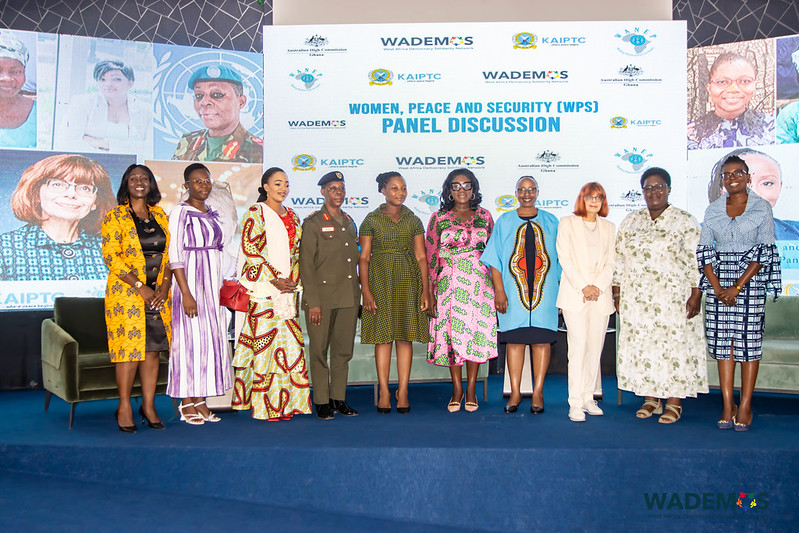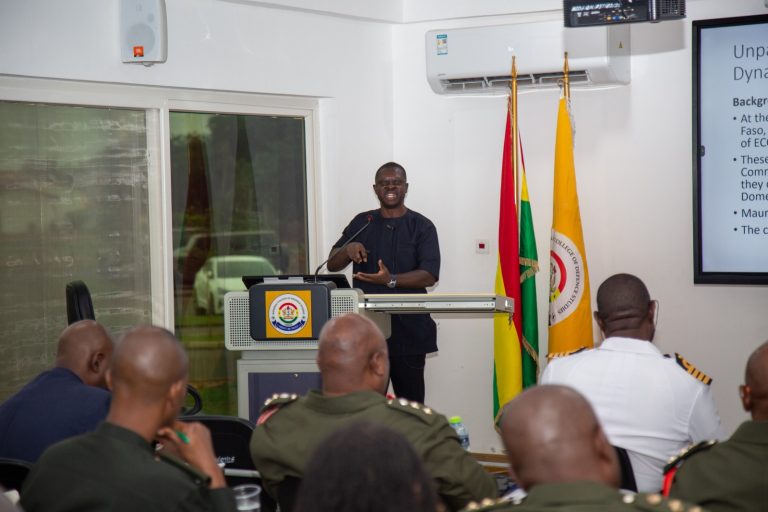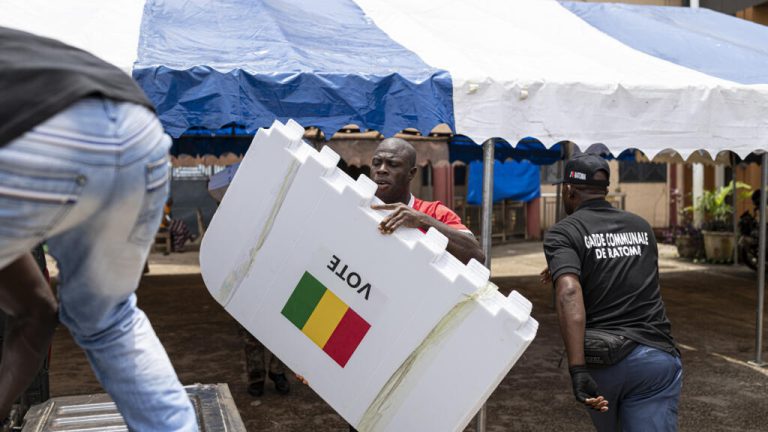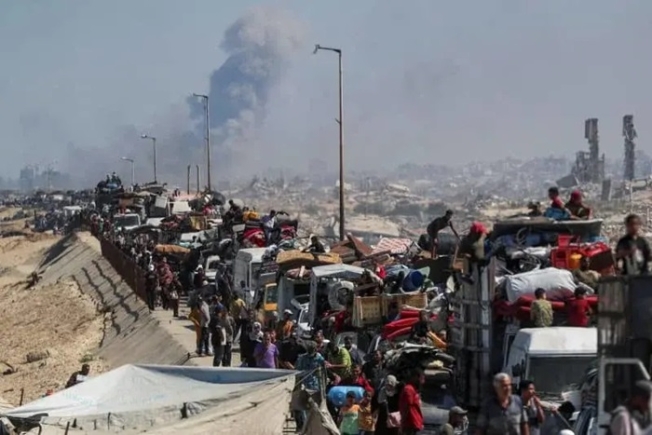Over the past couple of years West Africa, particularly the Sahel, has seen increasing levels
of insecurity, with issues such as terrorism, extremism, and inter-communal violence
threatening the stability and peace of the region.
In fragile and conflict-affected contexts, women and girls are disproportionately affected – experiencing unequal access to food, healthcare, education, and justice, and often experiencing sexual and gender-based violence. Women and girls are not on the sidelines of conflict or mass social dislocation. They are often the most affected and should therefore be at the center of efforts to ensure peace, security,
and social cohesion.
To support meaningful, and concrete outcomes that improve the lives of women and girls
globally, the Australian High Commission Ghana, in partnership with West Africa Democracy
Solidarity Network (WADEMOS), the West Africa Network for Peacebuilding (WANEP) and
the Kofi Annan International Peacekeeping Training Center organized the “Women, Peace
and Security Conference.” The event took place on Tuesday, April 16, 2024, bringing together experts and professionals from peace and security, media, international relations, gender, governance and policy backgrounds.
Takeaways from the Panel
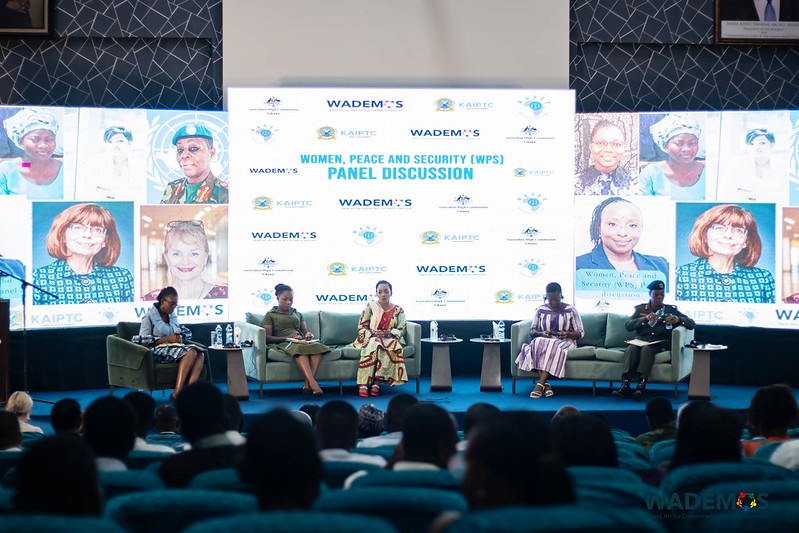
Moderated by Dr. (Mrs) Emma Birikorang Okwabi, Deputy Director, Faculty of Academic Affairs and Research, KAIPTC, the panel consisted of Ms. Theodora Williams Anti, Executive Director of the Forum for Security and Development in Africa (FOSDA), Ghana; Madam Noviekou Da Do Nora, Regional Analyst on Women, Peace and Security, WANEP; Ms. Mariam Diallo Drame, President, Association of Women Leadership and Sustainable Development (AFLED), Mali; and Brigadier General Anita Asmah, Ghana Armed Forces. Some of the essential takeaways include:
a) The traditional approach to peacekeeping, which served as a buffer between conflicting parties, has changed. The nature of contemporary peacekeeping is multidimensional, involving the military, police, civilians, and other stakeholders performing cross-functional roles and responsibilities across sectors. This speaks to the relevance of increasing women’s inclusion in peacekeeping and peacebuilding.
b) In Ghana, the Elsie Fund Initiative has constructed 200-bed accommodation to increase women’s inclusion in peacekeeping. As a result of the Fund, female representation in peacekeeping has seen a 24 percent increase.
c) The Ghana Armed Forces and other security agencies are urged to institute and implement structural reforms to integrate gender policies to address the needs of ‘women in uniform’ in peacekeeping and peacebuilding. These should include fostering gender-friendly communities and communities with differently-abled physical infrastructure. Women should not be pigeonholed into performing gendered tasks. Rather, they should be allowed to execute roles in all critical areas of the Armed Forces.
d) Capacity-building and sensitization workshop for women and girls in rural areas to help them deal with conflict situations and post-conflict reconstruction.
e) Include traditional leaders and queens in peacebuilding trainings and conversations.
f) Document the experiences of Indigenous people who were victims of conflict to serve as guidelines for designing interventions and solutions.
g) Provide psychosocial support and services to women who have lived through conflict and have been in precarious situations.
h) Provide forums for experience sharing, networking, and connection creation.
i) Increase investment and funding for organizations that support and advocate for women’s empowerment, particularly in rural areas.
j) Advocate policy reform to bring about quotas to increase women’s representation at all levels of peacekeeping and peacebuilding.
k) The recruitment drive should aim at attracting more women to peacekeeping missions.
l) Allocate quotas to women’s groups dedicated to peacebuilding initiatives and strengthen their capacity to contribute effectively.
m) Allocate an adequate budget to support initiatives aimed at encouraging women’s involvement in peacebuilding activities. Initiatives such as the Elsie Initiative Fund play a vital role in supporting women-led initiatives in peacebuilding.
n) Mobilize women to form groups and coalitions to amplify their participation and inclusion in peacebuilding.
o) Conduct gender-mainstreaming training for policymakers and decision-makers at the local and national levels.
p) Peacekeeping and peacebuilding seek to make the world a better place to live. In that same vein, peace is never arrived at; it is a process. Therefore, all actors, including women, should be brought on board.
q) Implement peacebuilding-related monitoring and evaluation activities to track success and challenge stories.
Recommendations
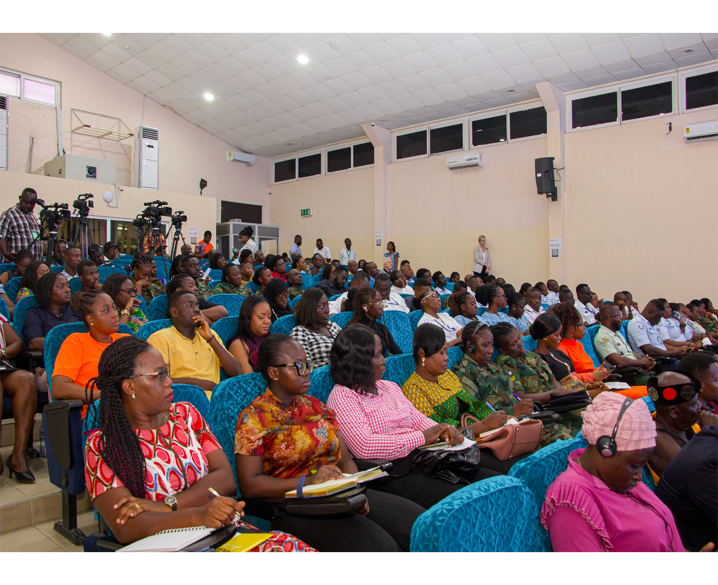
The panel and participants also made very cogent recommendations based on the discussions to strengthen peacebuilding efforts. Collectively, recommendations were formulated to propel greater gender equality in peacebuilding and security. These recommendations range from actions, policy advocacy, and institutional reforms to community engagement and public awareness campaigns. These include:
A) Recognize and address structural and institutional barriers to women and girls’ participation in peacebuilding and security: Acknowledge and address societal norms, cultural barriers, institutional constraints, and systemic inequalities that perpetuate the exclusion of women from decision-making roles in peacebuilding processes. Redefine structural and institutional reforms and roles to facilitate women’s participation in peacebuilding and peacekeeping.
B) Support women-led organizations in peacebuilding-related policy advocacy: Empower women-led organizations to promote female capacity, policy advocacy, and representation in peacebuilding and peacekeeping. These organizations are crucial in mobilizing women, advocating gender policies and programs, and building networks and coalitions.
C) Facilitate adequate financial and technical support for women-led organizations in peacebuilding: Adequate budget allocations, technical assistance, and awareness-raising are essential to enhancing women’s inclusion in peacebuilding. Women-led organizations require more than just financial assistance; they also need access to platforms for dialogue, technical guidance, and assistance with mobilization.
D) Implement quotas and policies to improve women’s inclusion and representation in peacebuilding: Quotas should be allocated to ensure women’s representation in peacebuilding initiatives, both at decision-making levels and at the grassroots.
E) Redefine legal and institutional reforms to address systemic inequalities in peacebuilding and peacekeeping: Redefine legal and policy frameworks to become more gender-friendly to address structural inequalities and institutional hurdles that hinder women’s participation and inclusion in peacebuilding.
F) Provide regular capacity-building on peacebuilding for women, girls, and youth: Invest in capacity-building programs for women, girls, and youth to enhance their knowledge and skills in conflict resolution, negotiation, and leadership. Initiatives such as the Elsie Initiative Fund are vital.
G) Promote community engagement and inclusive dialogue for peacebuilding: Engage with local communities and facilitate open and inclusive dialogue among conflicting parties, including women and other stakeholders, to understand the root causes of conflict and involve them in the peacebuilding process. Also, recognize the unique perspectives and priorities women bring to peacebuilding processes.
H) Monitor and evaluate peacebuilding initiatives to assess impact: Establish mechanisms to monitor and evaluate the impact of policies and initiatives on women and girls’ meaningful participation in peace and security. Regular assessments help to document success stories, identify gaps and areas for improvement, and ensure that efforts are responsive to the needs of women and girls.
